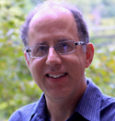 Column title: Crossed My Mind: Thoughts on Culture and Communication
Column title: Crossed My Mind: Thoughts on Culture and Communication
Column entry: Refusing “Godlike” Power: A Lenten Reflection
By John Hatch, Ph.D.
Eastern University (retired)
CCSN Senior Fellow
Column Description: As Christians, we are called to have the mind of Christ. This goes against the grain of our social and cultural conditioning. We seek personal or political advancement; Christ seeks the lost and the least. We grasp for cultural ascendency; Christ descends to the cross of love. This column is dedicated to thinking about culture and communication under the sign of the cross.
February 2024(2) / February 2024(1) / January 2024 / December 2023 / November 2023 / October 2023 / July 2023 / June 2023 / May 2023 / April 2023 / March 2023 / February 2023 / January 2023 / December 2022 / November(2) 2022 / November 2022 / October 2022 / August-September 2022 / June-July 2022 / January 2022 / December 2021 / October-November 2021
February 2024(2)
Refusing “Godlike” Power: A Lenten Reflection
Christian traditions around the world are currently observing Lent. Beginning on Ash Wednesday and concluding approximately 40 days later, Lent calls us to self-denial, prayer, self-examination, and repentance in commemoration of Jesus’ 40-day fast in the desert. During these weeks of prayer and preparation for Messianic ministry, Christ came face to face with the demonic temptations of false power and self-protection. As he prevailed through the Word of God, so Lent challenges us to face our own demons and overcome them through his Spirit of Truth. Scripture reveals that this battle has as much to do with cultural and political mindsets as personal behaviors.
In my last column, I explored the connection between longing for a kingly defender and falling prey to the Father of Lies. From Israel’s demand for a king in I Samuel 8 to Christ’s interaction with Messiah-hungry crowds in John 6-8, it’s clear that a zealous desire to establish or protect God’s kingdom on earth can easily succumb to the devilish allure of power. If pious Jews could be deceived in Bible times—and devout Christians could go far astray during the Spanish Inquisition, the rise of Nazi Germany, the Transatlantic slave trade, and a century of American segregation and lynching in the name of Christianity[i]—we must take pains to examine ourselves and our leaders carefully, in the light of Christ’s example and calling.
In St. Paul’s day, the simple fact that he had been carrying the message of God’s salvation to outsiders was enough to trigger a religious riot in Jerusalem,[ii] provoking them to cry out: “‘Rid the earth of him! He’s not fit to live.’”[iii] Filled with nationalist piety and apparent zeal for God, they were unwittingly tools of the devil (Greek: diabolos, which means “accuser” or “slanderer”).
In our day, we are not immune to such diabolical energy. When vandalism and looting break out at a protest march, and an activist leader justifies it as “reparations,” something unholy is at work. When a political rally gives rise to ranting about grievances, joking about violence, and chanting against perceived enemies, the spirit energizing the gathering is contrary to the Spirit of Christ—no matter how many Christians are in attendance or how much the candidate fawns over them. When a politician boasts like Nebuchadnezzar, lies like a con artist, expects total loyalty like a mob boss, traffics in slander, and winks at rioting on his or her behalf, we should recognize the demonic impulse at the heart of their power. When a media personality or religious leader enthusiastically supports such a politician, minimizes the seriousness of their lying, and criticizes anyone who calls that politician to account, we have reason to worry that they, too, have fallen under the sway of a deceiving spirit.
To be clear, I’m not talking about “demon possession” here, like the sensational images seen in The Exorcist and other supernatural horror movies. Scripture recognizes that demonic forces usually work more subtly and diffusely, animating collective bodies of people (kingdoms, tribes, institutions, etc.)—hence St. Paul’s use of the word “principalities.”[iv] We can think of a principality as the controlling mindset and personality of a large social group, herding them along, goading them to persecute nonconformers, and sometimes manifesting in a “mob mentality” when the group is especially frightened or angry.
We all know how easy it is to be caught up in the mood or drift of the crowd—especially our crowd. Tellingly, Paul describes Satan as “the prince of the power of the air.”[v] There’s something in the air—or airwaves—that poisons our mind and clouds our better judgment.
Like a drug-induced high, this demonic atmosphere can feel like a good thing—a “God” thing—when we’re energized with zeal and using Biblical language for what’s happening. That’s what happened in the Sanhedrin’s kangaroo trial of Jesus and the mob’s cries for his crucifixion. “Godly” zeal was in the air; they believed they were doing God’s work.
The devil tried a similar tactic when tempting Jesus in the wilderness. Masquerading as an angel of light,[vi] and even quoting Scripture,[vii] he offered him supernatural ability to do “God things”: multiply food for the hungry, marshal angelic protection, liberate his people, and reign over the nations. With such power, Christ surely could fulfill his Messianic mission! All he had to do was bow down to the Usurper’s way of grabbing power through deceit and intrigue.
Yet Jesus refused to take the bait. Heaven’s King does not climb to power; he descends in love. He doesn’t grasp for control; he trusts the Father. He doesn’t twist scriptures to save his nation (or his skin); he dies for the Truth.
And notice that after his resurrection, Jesus never says to his disciples, “Now that I’ve opened the way to heaven, go out and tell people how to get to heaven . . and while you’re at it, take dominion on the earth by seizing the reins of political power in my name.” Nor did he direct them to advance the kingdom of heaven by establishing a Christian nation and using its military power to pave the way for his message around the world.
A miraculous liberation of Judea led by Christ’s disciples surely would have convinced many ordinary Jews to believe in Jesus as Messiah—yet Jesus gives no such directive. His Way is not like ours. He comes to earth, not to get souls to heaven while embracing the ways of worldly power, but rather to announce the inbreaking of his kingdom based on truth and love and willing sacrifice, through which our souls are redeemed. And he calls us to live as citizens of that kingdom by together walking in his Way, here and now.
hat’s why Jesus said, “‘Whoever wants to be my disciple must deny themselves and take up their cross and follow me.’”[viii] He expects us to take his path, empowered by the Spirit of Truth. And that’s exactly what his followers did in the early centuries of the faith. They didn’t bear arms—neither to defend themselves nor fight in holy wars. Instead, they opened their arms to the needy and downtrodden, and stretched out their arms to accept persecution (whether by crucifixion or Coliseum) for testifying that the Crucified, not Caesar, was their true King on earth.
Are we prepared to recapture their faith in our day?
I am reminded of a 20th century King who sought to follow in Christ’s footsteps. Martin Luther King, Jr. spoke frequently of the cross and willingly faced death for the sake of truth, justice, and reconciliation.[ix] Taking a lesson from Gandhi’s nonviolent “truth force” (inspired by Christ’s teaching), King led African Americans in a confrontational yet peaceful quest for Beloved Community—a society of equality and brotherhood among all races. Black Americans had far greater reason to fear fellow Americans than any of us today; yet in their pursuit of justice, led by MLK, they chose the path of agape love toward those who had so long oppressed them.
Of course, political leaders won’t measure up to the pastoral and prophetic example of King. And they certainly won’t look anything like the King of Kings. We look to them for pragmatic leadership and policy outcomes, not perfect truth and love. But that doesn’t excuse us veering to the other extreme—lionizing, or even supporting, someone who revels in raw power and tramples on truth.
While American democracy certainly isn’t God’s kingdom, nor God’s means of advancing the kingdom, the authoritarian alternatives are worse. In a democracy, as in all forms of government, “power corrupts”—but “absolute power corrupts absolutely.”[x]
For all its faults, a democratic republic divides power into limited offices and institutions that check and balance one another. To remain healthy and effective, however, it needs its citizens to elect leaders who serve rather than dominate, place integrity above power, and embrace the limits rather than try to circumvent them. Our system depends on a modicum of humility, goodwill, and compromise.
This means that it can be hard to get our agenda through, and that’s frustrating.
If we grow impatient and seek to enforce our will by electing someone who will commandeer our democracy in an authoritarian direction, we may soon find ourselves at the mercy of a dictator. Instead of bravely facing potential persecution for speaking Truth, we will have brought trouble on ourselves and our neighbors by fearfully embracing the “protection” offered by raw power.
This year, Lent coincides with a pivotal political primary season. With that in mind, let us examine our beliefs, attitudes, and inclinations. Are we choosing the way of Truth, or the way of power, in the voices we attend to and the leaders we favor?
In the years ahead, will we support the kind of leadership that crucifies Truth in the name of saving our nation? Or will we follow in the footsteps of the Crucified, confident that his Truth will prevail?
* The views of any CCSN columnists are their own, and do not necessarily represent the views of the CCSN. We invite and embrace a wide range of views and critiques on important communication and cultural issues. The CCSN is a community of Jesus followers who study communication. We do not support or promote a particular social, political, or denominational agenda.
Notes
[i] Abundant historical evidence shows that lynchings were perpetrated in the name of Christianity. The KKK burned crosses to display their pious zeal; and many public lynchings were held Sunday afternoons so that churchgoers could gather for a massive picnic and Christian “entertainment.”
[ii] Acts 21:17-20, 27-36.
[iii] Acts 22:22, NIV.
[iv] Ephesians 6:12, NKJV.
[v] Ephesians 2:2, NKJV.
[vi] 2 Corinthians 11:14.
[vii] Matthew 4:6.
[viii] Matthew 16:24.
[ix] See James H. Cone, The Cross and the Lynching Tree (Maryknoll, New York: Orbis, 2011), chapter 3.
[x] This quote from Lord Acton, and the letter in which he wrote it, can be found at https://oll.libertyfund.org/quotes/lord-acton-writes-to-bishop-creighton-that-the-same-moral-standards-should-be-applied-to-all-men-political-and-religious-leaders-included-especially-since-power-tends-to-corrupt-and-absolute-power-corrupts-absolutely-1887.

